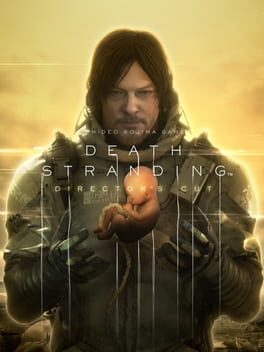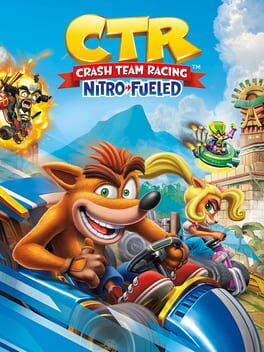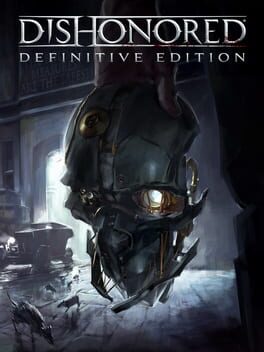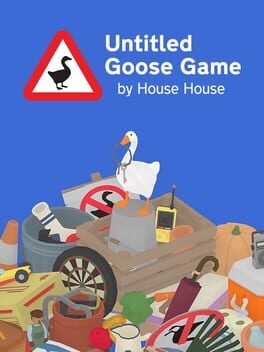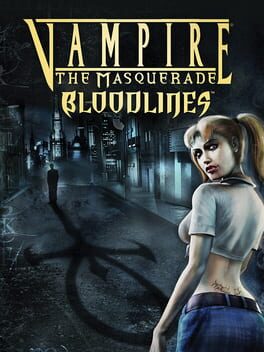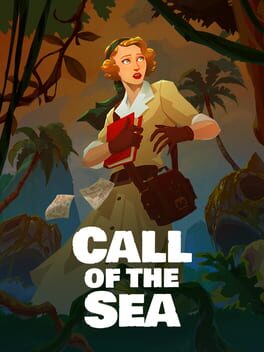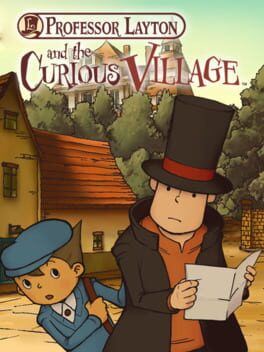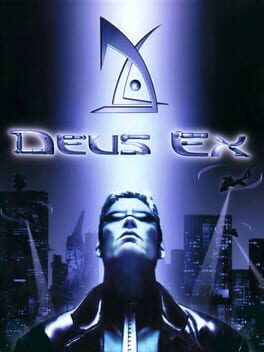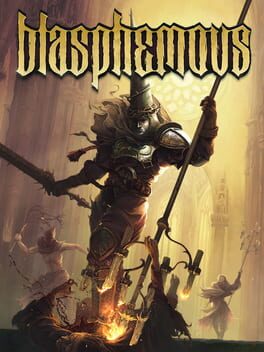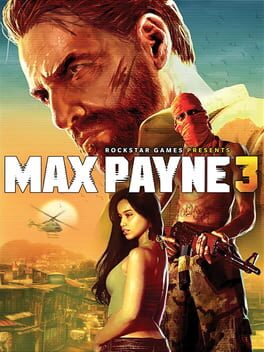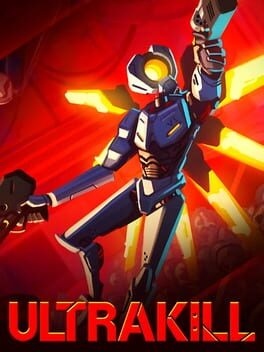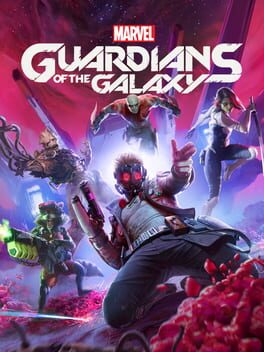emilem
Death Stranding is the best multiplayer game going because it does away with the worst part about multiplayer games; other players.
I think the thing that caught me most by surprise in revisiting this game 4 years after it's release was the confusion on just how divisive it was when it came out. At the time I remember phrases like "walking sim" getting thrown around and not to be rude but you'd have to be purposefully oblivious to think Death Stranding has only walking to offer.
Sure, the core of the game is walking from point A to point B. But the world is designed in such a way to make such a simple task incredibly engaging. Traversing this uniquely post-apocalyptic America is never dull, and you're always kept on your toes. As an experiment I TRIED to check my phone during seeming quiet moments and ended up eating shit and ruining somebody's precious cargo (Apologies to the poor denizen of Port Knot City whose stuff I ruined, if it's any consolation the poor Porters Grade I received dampened my spirits).
DS does an incredible job of creating a new kind of game, that of the humble delivery man, and kept adding new ways to keep it engaging during my 60+ hour run time. Either through new tools, vehicles, or environmental hazards. It's online system also works wonders in evolving the world, and making you feel connected with others. The amount of times I mashed the like button because some kind soul had placed a vehicle, Timestop shelter, or some other handy resource in the middle of nowhere, seemingly out of the goodness of their heart, is too many to count. I have never had such an engaging and heartwarming experience with a community I can't directly communicate with.
It's story is equally as entapturing, it's the standard Kojima affair, and you can feel his style oozing through almost every facet of prose, it had my smiling, laughing, crying, and just all around hooked.
I truly am thrilled this game is receiving a sequel, there are so many moments I could gush about, it has some amazing gameplay segments that rely on the players cunning and knowledge to resolve, it treats the player with respect and patience, and asks only you do the same with it.
If your were turned away from Death Stranding because of some of the negative press it received on launch, go back and give it a go, it's a title that demands your attention.
I'll be waiting for you on the Beach.
I think the thing that caught me most by surprise in revisiting this game 4 years after it's release was the confusion on just how divisive it was when it came out. At the time I remember phrases like "walking sim" getting thrown around and not to be rude but you'd have to be purposefully oblivious to think Death Stranding has only walking to offer.
Sure, the core of the game is walking from point A to point B. But the world is designed in such a way to make such a simple task incredibly engaging. Traversing this uniquely post-apocalyptic America is never dull, and you're always kept on your toes. As an experiment I TRIED to check my phone during seeming quiet moments and ended up eating shit and ruining somebody's precious cargo (Apologies to the poor denizen of Port Knot City whose stuff I ruined, if it's any consolation the poor Porters Grade I received dampened my spirits).
DS does an incredible job of creating a new kind of game, that of the humble delivery man, and kept adding new ways to keep it engaging during my 60+ hour run time. Either through new tools, vehicles, or environmental hazards. It's online system also works wonders in evolving the world, and making you feel connected with others. The amount of times I mashed the like button because some kind soul had placed a vehicle, Timestop shelter, or some other handy resource in the middle of nowhere, seemingly out of the goodness of their heart, is too many to count. I have never had such an engaging and heartwarming experience with a community I can't directly communicate with.
It's story is equally as entapturing, it's the standard Kojima affair, and you can feel his style oozing through almost every facet of prose, it had my smiling, laughing, crying, and just all around hooked.
I truly am thrilled this game is receiving a sequel, there are so many moments I could gush about, it has some amazing gameplay segments that rely on the players cunning and knowledge to resolve, it treats the player with respect and patience, and asks only you do the same with it.
If your were turned away from Death Stranding because of some of the negative press it received on launch, go back and give it a go, it's a title that demands your attention.
I'll be waiting for you on the Beach.
Don't fix what isn't broke.
Nitro-Fueled understood what needed to be done bringing CTR to modern consoles; really not that much. It nails the feel of the original PS1 title and adds flare and the current gen graphics, makes some of the trickier aspects like drift-boosting a little easier to read, but by and large this is the same PS1 CD-R with a fresh gleam of paint and a Blu-Ray disc. It slathers on an extra helping of Nitro Kart levels, whcih was a fun new experience for me and many people because who the hell played Nitro Kart.
Having the option to play the Legacy Music was also a nice touch, I almost wish Legacy Voice Lines would be available too for that extra kick of nostalgia, but it's a moot point when you have one of the greatest kart racers here.
It gets 9 stars rather than 10 because of it's pissy little microtransactions, sure you can get everything without paying but I'd rather it not be there in the first place. Also Baby Crash/Coco/Cortex freak me out.
Nitro-Fueled understood what needed to be done bringing CTR to modern consoles; really not that much. It nails the feel of the original PS1 title and adds flare and the current gen graphics, makes some of the trickier aspects like drift-boosting a little easier to read, but by and large this is the same PS1 CD-R with a fresh gleam of paint and a Blu-Ray disc. It slathers on an extra helping of Nitro Kart levels, whcih was a fun new experience for me and many people because who the hell played Nitro Kart.
Having the option to play the Legacy Music was also a nice touch, I almost wish Legacy Voice Lines would be available too for that extra kick of nostalgia, but it's a moot point when you have one of the greatest kart racers here.
It gets 9 stars rather than 10 because of it's pissy little microtransactions, sure you can get everything without paying but I'd rather it not be there in the first place. Also Baby Crash/Coco/Cortex freak me out.
2021
This review contains spoilers
So much said with very little words
Unpacking is a very short, very cozy, and yet somehow heart-wrenching title. The premise is exceptionally simple, you play a character who is unpacking into their new home at various stages of their life, from childhood to adolescence. Open the boxes, grab the things out the boxes, place them appropriately in the space provided, and you win!
To me, the gameplay loop could get a little tedious at times, especially in some of the larger levels. That’s not to say that getting everything in it’s right place wasn’t satisfying, it very much was, it’s just getting there could feel a bit of a slog sometimes, much like the actual act of unpacking.
But really that’s not even where Unpacking’s magic lies, this game does such an incredible job of telling a coherent story with the only dialogue being the footnotes your character annotates each “new home” picture with, which culminates to maybe a couple dozen words by the end of the game. The protagonist goes through the aching pains of growing up, making new friends, falling in and out of love, and exciting career opportunities, and you gleam all of this through the simple act of getting things out of boxes and putting them in places.
I was enraged when I was forced to put the diploma under the bed, I was concerned when it was revealed my character needed a cane to get around, I was giddy when I saw their table-top miniature had finally been painted, I nearly cried when I got the stuffed pig out for the very last time.
Make no mistake, this is a narrative game, one that trusts the player to understand what it’s trying to say, but Witch Beam have done such an immaculate job of telling the story that you really don’t need to do a lot of legwork.
Unpacking is a very short, very cozy, and yet somehow heart-wrenching title. The premise is exceptionally simple, you play a character who is unpacking into their new home at various stages of their life, from childhood to adolescence. Open the boxes, grab the things out the boxes, place them appropriately in the space provided, and you win!
To me, the gameplay loop could get a little tedious at times, especially in some of the larger levels. That’s not to say that getting everything in it’s right place wasn’t satisfying, it very much was, it’s just getting there could feel a bit of a slog sometimes, much like the actual act of unpacking.
But really that’s not even where Unpacking’s magic lies, this game does such an incredible job of telling a coherent story with the only dialogue being the footnotes your character annotates each “new home” picture with, which culminates to maybe a couple dozen words by the end of the game. The protagonist goes through the aching pains of growing up, making new friends, falling in and out of love, and exciting career opportunities, and you gleam all of this through the simple act of getting things out of boxes and putting them in places.
I was enraged when I was forced to put the diploma under the bed, I was concerned when it was revealed my character needed a cane to get around, I was giddy when I saw their table-top miniature had finally been painted, I nearly cried when I got the stuffed pig out for the very last time.
Make no mistake, this is a narrative game, one that trusts the player to understand what it’s trying to say, but Witch Beam have done such an immaculate job of telling the story that you really don’t need to do a lot of legwork.
Perhaps a little muted as time has marched on.
Make no mistake, Dishonored is an unforgettable title, one that revived a long-dormant genre at the time, and done with such style and grace that it was probably used as a reference point by executive producers as a pretty good idea to rip off. However, it being a product of a time just before an im-sim renaissance, it's sort of hard to get as excited for this game as I did when it first came out all those years ago.
It's not even necessarily a poorly executed game, but it's just a little too easy - or at least presents itself as easy. What I mean is that combat encounters and the moment-to-moment gameplay can be challenging, but navigating the world and figuring out the best way to deal with your enemies is far too simple. There are exceptionally well designed mini-open world spaces that are begging to be explored and within ten minutes you have some pissing map marker hovering your targets head after picking up a piece of paper with his routine that was conveniently left right where it needed it to be.
The joy really comes from HOW you deal with your target, and Dishonored does give you many options, there's nothing wrong with that, it just feels like a bit of a waste that you're never encouraged to do a little more critical and tactical thinking yourself.
And the DLC is...fine? It's more of the same. Daud's levels are especially "go play more", if you're looking for a story you really won't get much more than "The Outsider has pointed you towards exposition, away with ye". I even think it retroactively changes one of your choices in the main game if you play a certain way which...irks me slightly.
Overall this game is worth a play I'd say, tremendous amounts of fun and super stylish, but in this day and age you can get that and even more in other places, including by the very same people who made this, and probably in the very same franchise.
Make no mistake, Dishonored is an unforgettable title, one that revived a long-dormant genre at the time, and done with such style and grace that it was probably used as a reference point by executive producers as a pretty good idea to rip off. However, it being a product of a time just before an im-sim renaissance, it's sort of hard to get as excited for this game as I did when it first came out all those years ago.
It's not even necessarily a poorly executed game, but it's just a little too easy - or at least presents itself as easy. What I mean is that combat encounters and the moment-to-moment gameplay can be challenging, but navigating the world and figuring out the best way to deal with your enemies is far too simple. There are exceptionally well designed mini-open world spaces that are begging to be explored and within ten minutes you have some pissing map marker hovering your targets head after picking up a piece of paper with his routine that was conveniently left right where it needed it to be.
The joy really comes from HOW you deal with your target, and Dishonored does give you many options, there's nothing wrong with that, it just feels like a bit of a waste that you're never encouraged to do a little more critical and tactical thinking yourself.
And the DLC is...fine? It's more of the same. Daud's levels are especially "go play more", if you're looking for a story you really won't get much more than "The Outsider has pointed you towards exposition, away with ye". I even think it retroactively changes one of your choices in the main game if you play a certain way which...irks me slightly.
Overall this game is worth a play I'd say, tremendous amounts of fun and super stylish, but in this day and age you can get that and even more in other places, including by the very same people who made this, and probably in the very same franchise.
2019
What a horrible little goose I am.
I played this game when it came out, and this time around I had the joy to experience "Untitled Geese Game" with a friend. The sheer amount of joy experienced playing this is quite literally doubled when played co-operatively. Myself and my fellow goose-in-crime started giggling as soon as their head popped out of the bushes following mine, and then didn't stop for about two and a half hours.
Truly the biggest downside of this game is that two and a half hours is by-and-large what you get, maybe just under double that if you go for all the added achievements. It's a shame because I left wanting more at the end.
But that doesn't mean what's their isn't wonderfully silly, truly it's one of the few games that I think deserves the title of a comedy video game, it's a delightfully goofy puzzle game, and in all honesty any game that has a dedicated honk button deserves praise for that alone.
I played this game when it came out, and this time around I had the joy to experience "Untitled Geese Game" with a friend. The sheer amount of joy experienced playing this is quite literally doubled when played co-operatively. Myself and my fellow goose-in-crime started giggling as soon as their head popped out of the bushes following mine, and then didn't stop for about two and a half hours.
Truly the biggest downside of this game is that two and a half hours is by-and-large what you get, maybe just under double that if you go for all the added achievements. It's a shame because I left wanting more at the end.
But that doesn't mean what's their isn't wonderfully silly, truly it's one of the few games that I think deserves the title of a comedy video game, it's a delightfully goofy puzzle game, and in all honesty any game that has a dedicated honk button deserves praise for that alone.
An incredibly flawed gem.
Bloodlines comes so, so close to being masterpiece, an RPG ahead of it's time, but it fumbles the ball in the final act. It starts off very strong, choices feel like they have weight, dialogue is well written and interesting, levels are designed in a way that feels like it can be approached from multiple directions.
The only things I could have initially pointed out as a criticism was that it was a little buggy (to be expected from a game on its 20th anniversary), and the combat. The combat is a little floaty and doesn't quite pack a punch, in the same way that Deus Ex's does. And that was fine, I believe it's meant to feel that way until you put more points into it.
What becomes a problem is when the entire third act is compromised almost entirely of combat. The final levels completely drop any guise of trying to be an RPG, choice disappears, level complexity vanishes, as you're forced through waves upon waves of frustrating enemies.
After three levels of this, mixed with just as many frustrating boss fights, I felt disappointed, I felt frustrated. There's so much unrealised potential here, it truly was close to being an incredibly memorable classic, but gets dampened by its finale.
Bloodlines comes so, so close to being masterpiece, an RPG ahead of it's time, but it fumbles the ball in the final act. It starts off very strong, choices feel like they have weight, dialogue is well written and interesting, levels are designed in a way that feels like it can be approached from multiple directions.
The only things I could have initially pointed out as a criticism was that it was a little buggy (to be expected from a game on its 20th anniversary), and the combat. The combat is a little floaty and doesn't quite pack a punch, in the same way that Deus Ex's does. And that was fine, I believe it's meant to feel that way until you put more points into it.
What becomes a problem is when the entire third act is compromised almost entirely of combat. The final levels completely drop any guise of trying to be an RPG, choice disappears, level complexity vanishes, as you're forced through waves upon waves of frustrating enemies.
After three levels of this, mixed with just as many frustrating boss fights, I felt disappointed, I felt frustrated. There's so much unrealised potential here, it truly was close to being an incredibly memorable classic, but gets dampened by its finale.
2020
A tight little puzzler that leaves the player wanting more, for better or worse
It's always difficult to tell how long a game should be, what feels like a "good" length. Call of the Sea I managed to beat in three sessions, probably adding up to around 5-6 hours, I got it for free on PlayStation Plus, but ultimately for it's cost at the time (~£15) I feel like I would have gotten my moneys worth.
And yet, I feel as if Call of the Sea should have more to offer. Off the top of my head, I'd guess that the game had around half a dozen proper puzzles, they're intricate sure, and unbelievably satisfying to figure out. They're truly engaging and built into the world wonderfully, and at no point did I feel they were unfair, nor did I think they were too easy, I had a "Eureka!" moment with each, which is something I admire in a puzzle game, to be able to strike that balance.
However, as mentioned, there's not many of them, and what's their is artificially expanded by climbing animations (admittedly not used frequently but they take so long that it irked me) and large maps that can feel hollow. Don't get me wrong, they're strikingly pretty (kudos to the art direction), but if you strip away the visuals, there's long stretches of nothing between puzzle elements.
In other games, you could argue these long walks give the player a chance to ruminate on the situation, to think on the story and try to piece things together, and I honestly think Call of the Sea could have pulled that off if they'd given more intrigue to the mystery, instead of holding its cards close to its chest for the most part before spelling it out for you, there's not much to ruminate on aside baseless speculation until the end.
Ultimately, Call of the Sea acts as a great novella, if a little hollow past the surface, there's not many layers to it. The puzzles are well thought out, and the story is very sweet, just lacking complexity. I feel as though it hits a funny point on the Goldilocks spectrum; it's not too short, it's not too long, but it's not just right.
It's always difficult to tell how long a game should be, what feels like a "good" length. Call of the Sea I managed to beat in three sessions, probably adding up to around 5-6 hours, I got it for free on PlayStation Plus, but ultimately for it's cost at the time (~£15) I feel like I would have gotten my moneys worth.
And yet, I feel as if Call of the Sea should have more to offer. Off the top of my head, I'd guess that the game had around half a dozen proper puzzles, they're intricate sure, and unbelievably satisfying to figure out. They're truly engaging and built into the world wonderfully, and at no point did I feel they were unfair, nor did I think they were too easy, I had a "Eureka!" moment with each, which is something I admire in a puzzle game, to be able to strike that balance.
However, as mentioned, there's not many of them, and what's their is artificially expanded by climbing animations (admittedly not used frequently but they take so long that it irked me) and large maps that can feel hollow. Don't get me wrong, they're strikingly pretty (kudos to the art direction), but if you strip away the visuals, there's long stretches of nothing between puzzle elements.
In other games, you could argue these long walks give the player a chance to ruminate on the situation, to think on the story and try to piece things together, and I honestly think Call of the Sea could have pulled that off if they'd given more intrigue to the mystery, instead of holding its cards close to its chest for the most part before spelling it out for you, there's not much to ruminate on aside baseless speculation until the end.
Ultimately, Call of the Sea acts as a great novella, if a little hollow past the surface, there's not many layers to it. The puzzles are well thought out, and the story is very sweet, just lacking complexity. I feel as though it hits a funny point on the Goldilocks spectrum; it's not too short, it's not too long, but it's not just right.
The Curious Village is a wonderfully fun little puzzle romp.
It's difficult to rate it fairly I think, because I played it many years ago and had a vague rememberance of how the mystery ended that kind of ruins a lot of the stories pacing for me. Granted, it allowed me an appreciation for how the game planted seeds throughout, but I still feel it'll be a little unfair to judge considering the story is the main attraction here.
Obviously it's a puzzle game, but the puzzles are 90% of the time unrelated to the story, often being random minigames thrown at you by the villagers (which is given a fun narrative reason toward the end that I don't suppose will be given in sequels). That's not to say the puzzles aren't fun per se, but the driving force for completing them is to unravel the story.
It's a fun mystery, with great characters, and some truly gorgeous cutscenes when the game decides to utilise them.
It's difficult to rate it fairly I think, because I played it many years ago and had a vague rememberance of how the mystery ended that kind of ruins a lot of the stories pacing for me. Granted, it allowed me an appreciation for how the game planted seeds throughout, but I still feel it'll be a little unfair to judge considering the story is the main attraction here.
Obviously it's a puzzle game, but the puzzles are 90% of the time unrelated to the story, often being random minigames thrown at you by the villagers (which is given a fun narrative reason toward the end that I don't suppose will be given in sequels). That's not to say the puzzles aren't fun per se, but the driving force for completing them is to unravel the story.
It's a fun mystery, with great characters, and some truly gorgeous cutscenes when the game decides to utilise them.
2000
A classic that's showing it's age, if only because it laid the ground works for a new genre.
Deus Ex is undeniably a project worth celebrating, it allows the player a tremendous amount of agency and rewards them for playing smart. At any given moment I felt curious enough to look around, explore the environment and try and find new ways to tackle a task.
However, I never felt encouraged to, the world is incredibly sparse and the design isn't tight, it can guide you to things but it's more a case of luck or stumbling onto something rather than it feeling like being taken on a route. I don't necessarily have a problem with this kind of design, but it can feel frustrating at some points.
I can't knock Deus Ex too hard on this, it's really the first of its kind and I'm accustomed now to games like Dishonored and even Deus Ex's modern iterations improving on this formula. For example, the game gives you a lot of lethal, non-lethal, loud or silent options to take on enemies, yet they never really feel like it makes a difference what you do to get to the end as long as you get to the end. Again, not so much a problem, I like that the options are there, but it would be nice to feel the weight of these choices in some scenarios.
Ultimately, Deus Ex holds up as a classic, one I'm sure I'll revisit many, many times.
Deus Ex is undeniably a project worth celebrating, it allows the player a tremendous amount of agency and rewards them for playing smart. At any given moment I felt curious enough to look around, explore the environment and try and find new ways to tackle a task.
However, I never felt encouraged to, the world is incredibly sparse and the design isn't tight, it can guide you to things but it's more a case of luck or stumbling onto something rather than it feeling like being taken on a route. I don't necessarily have a problem with this kind of design, but it can feel frustrating at some points.
I can't knock Deus Ex too hard on this, it's really the first of its kind and I'm accustomed now to games like Dishonored and even Deus Ex's modern iterations improving on this formula. For example, the game gives you a lot of lethal, non-lethal, loud or silent options to take on enemies, yet they never really feel like it makes a difference what you do to get to the end as long as you get to the end. Again, not so much a problem, I like that the options are there, but it would be nice to feel the weight of these choices in some scenarios.
Ultimately, Deus Ex holds up as a classic, one I'm sure I'll revisit many, many times.
2019
I'm not one who takes to Souls-like games very often, and yet I couldn't stop playing Blasphemous.
Sure, it suffers from typically Souls-like tropes, namely with it's painful vagueness in it's prose which can be legitimately frustrating if you want to get the "best" ending (something that gets locked off if you don't do specific things before one of the bosses). But in terms of gameplay, Blasphemous is incredible.
It's tight, responsive, and oh-so-satisfying. Unlocking new abilities is exciting and discovering places to upgrade Mea Culpa or your health genuinely made me gasp with delight. Exploring the world is fun and sufficiently rewards the player. Everything about it's map, enemies, and controls is done so well that I couldn't put the game down.
And I believe that it's handling death punishments is probably the best I've seen in this genre. It doesn't take away your Tears (this games equivalent of souls) upon death, instead capping your prayer gauge (another feature that is just genuinely very cool). This is incredibly smart, one of the more frustrating things about Souls games is death can be a major loss of progress if you're carrying a lot of souls. Here, death is a chance for you to level up, take the Tears you've gathered up until the point you died, get stronger, and try again.
This means that, even with the games difficulty, you always feel like you're making progress, you never feel stuck and it never gets frustrating, death isn't nearly as nerve wracking as it was and that's a good thing, it allows you to enter fights a little more fearlessly and really take some risks during Combat that you might not do if hours worth of progress was on the line.
On top of all of this, aesthetically Blasphemous is stunning, it's Spanish Gothic architecture is intricately detailed and simply wonderful to look at, character and boss designs are endlessly memorable, and the soundtrack is incredible at setting the tone for it's many variations of areas, and there are many.
Even if you haven't stuck to Souls games before, give Blasphemous a go, it seems to do almost everything right.
Sorrowful be the heart, Penitent One.
Sure, it suffers from typically Souls-like tropes, namely with it's painful vagueness in it's prose which can be legitimately frustrating if you want to get the "best" ending (something that gets locked off if you don't do specific things before one of the bosses). But in terms of gameplay, Blasphemous is incredible.
It's tight, responsive, and oh-so-satisfying. Unlocking new abilities is exciting and discovering places to upgrade Mea Culpa or your health genuinely made me gasp with delight. Exploring the world is fun and sufficiently rewards the player. Everything about it's map, enemies, and controls is done so well that I couldn't put the game down.
And I believe that it's handling death punishments is probably the best I've seen in this genre. It doesn't take away your Tears (this games equivalent of souls) upon death, instead capping your prayer gauge (another feature that is just genuinely very cool). This is incredibly smart, one of the more frustrating things about Souls games is death can be a major loss of progress if you're carrying a lot of souls. Here, death is a chance for you to level up, take the Tears you've gathered up until the point you died, get stronger, and try again.
This means that, even with the games difficulty, you always feel like you're making progress, you never feel stuck and it never gets frustrating, death isn't nearly as nerve wracking as it was and that's a good thing, it allows you to enter fights a little more fearlessly and really take some risks during Combat that you might not do if hours worth of progress was on the line.
On top of all of this, aesthetically Blasphemous is stunning, it's Spanish Gothic architecture is intricately detailed and simply wonderful to look at, character and boss designs are endlessly memorable, and the soundtrack is incredible at setting the tone for it's many variations of areas, and there are many.
Even if you haven't stuck to Souls games before, give Blasphemous a go, it seems to do almost everything right.
Sorrowful be the heart, Penitent One.
2012
Max Payne 3 is criminally underrated.
Sure, the story probably doesn't kick quite as much as the other two, it rehashes old story beats gone over in The Fall of Max Payne. He's grappling with having to overcome his dead family yet again. However that doesn't mean it's not still a good story in of itself, it's engaging, has plenty of twists and turns, and has a lot of satisfying beats.
But that's not why it's underrated, it's underrated because it is one of the most satisfying and well constructed third person shooters out there. Max is a joy to control, fight scenes are excellently choreographed because of how Max stumbles around the battlefield wielding whatever guns he can get his hands on, which makes most gun fights look like they jump straight out of the John Woo movies that originally inspired Max's creation at Remedy.
The limited arsenal means that you're constantly switching through guns, you might have your favourites but they won't always be there, so you're always keeping an eye out for what your enemies are using and if you can nab anything off their corpses when you're done filling them with bullets.
Levels are distinct and memorable, setting the game in Sao Paulo with flashbacks to NYC means you have a cavalcade of set pieces to explore, with moments like the Airport being some of the most memorable in gaming history (go listen to TEARS by HEALTH now)
Max Payne 3 doesn't get the respect it deserves, it might not be as narratively impressive as its predecessors, but its gameplay is well worth your time.
Like
Sure, the story probably doesn't kick quite as much as the other two, it rehashes old story beats gone over in The Fall of Max Payne. He's grappling with having to overcome his dead family yet again. However that doesn't mean it's not still a good story in of itself, it's engaging, has plenty of twists and turns, and has a lot of satisfying beats.
But that's not why it's underrated, it's underrated because it is one of the most satisfying and well constructed third person shooters out there. Max is a joy to control, fight scenes are excellently choreographed because of how Max stumbles around the battlefield wielding whatever guns he can get his hands on, which makes most gun fights look like they jump straight out of the John Woo movies that originally inspired Max's creation at Remedy.
The limited arsenal means that you're constantly switching through guns, you might have your favourites but they won't always be there, so you're always keeping an eye out for what your enemies are using and if you can nab anything off their corpses when you're done filling them with bullets.
Levels are distinct and memorable, setting the game in Sao Paulo with flashbacks to NYC means you have a cavalcade of set pieces to explore, with moments like the Airport being some of the most memorable in gaming history (go listen to TEARS by HEALTH now)
Max Payne 3 doesn't get the respect it deserves, it might not be as narratively impressive as its predecessors, but its gameplay is well worth your time.
Like
2020
Despite it only being in early access, ULTRAKILL is one of those rare perfect games.
It's a game that forces you to get absorbed in it. It doesn't mess around, it's fast and expects you to catch up. And when you do it comes as natural as breathing.
The controls are flawless, just watch somebody play and you might be tricked into thinking that it's beyond you, but everything comes so naturally that you'll find yourself pulling off shots you didn't even realise you were capable of, I don't know if it's the music, the design, or just how the guns feel, but something about ULTRAKILL just feels like second nature when you get to grips with it.
Speaking of, the music is absolutely brutal in the best ways, incorporating high intensity breakcore to really get your blood pumping and move with it.
I have no critique on ULTRAKILL, I hope the rest of the content that comes to ULTRAKILL is more ULTRAKILL. Enjoy ULTRAKILL.
It's a game that forces you to get absorbed in it. It doesn't mess around, it's fast and expects you to catch up. And when you do it comes as natural as breathing.
The controls are flawless, just watch somebody play and you might be tricked into thinking that it's beyond you, but everything comes so naturally that you'll find yourself pulling off shots you didn't even realise you were capable of, I don't know if it's the music, the design, or just how the guns feel, but something about ULTRAKILL just feels like second nature when you get to grips with it.
Speaking of, the music is absolutely brutal in the best ways, incorporating high intensity breakcore to really get your blood pumping and move with it.
I have no critique on ULTRAKILL, I hope the rest of the content that comes to ULTRAKILL is more ULTRAKILL. Enjoy ULTRAKILL.
Disco Elysium is one of the best narrative games I have ever played.
It's a game that I struggle finding faults with, only minor ones that, in the grand scheme of things, really don't matter. It's movement is a little clunky, and the UI is difficult to navigate on console, minor gripes. The biggest issue I immediately had with it I quickly got over. I initially had an issue with the ending, and the resolution to the mystery, but it was when I realised that the result wasn't the important aspect, rather the intricate stories of everyone involved, I overcame my upset.
This game is fantastic, it's written excellently, the voice acting is superb, it's funny, it's dramatic, it's heartbreaking and it's intriguing. I can't really do much else aside sing it's praises and tell you how much I love Kim Kitsuragi. Play Disco Elysium.
It's a game that I struggle finding faults with, only minor ones that, in the grand scheme of things, really don't matter. It's movement is a little clunky, and the UI is difficult to navigate on console, minor gripes. The biggest issue I immediately had with it I quickly got over. I initially had an issue with the ending, and the resolution to the mystery, but it was when I realised that the result wasn't the important aspect, rather the intricate stories of everyone involved, I overcame my upset.
This game is fantastic, it's written excellently, the voice acting is superb, it's funny, it's dramatic, it's heartbreaking and it's intriguing. I can't really do much else aside sing it's praises and tell you how much I love Kim Kitsuragi. Play Disco Elysium.
Guardians of the Galaxy advertises itself as a character-action adventure game, but there's not where its strength lies. What GotG really is, is a stellar narrative experience with some combat peppered in between.
Starting with the negative, which unfortunately is the action. Don't get me wrong, for a game that has you fighting off swarms of enemies while juggling your four companions as well as your own abilities, it does quite well. All members of the team carry their weight and I frequently used their powers. Problem is that in general it feels very clunky, and really when the combat is this fast paced you want it to snap a little better. I think with a few tweaks a prospective sequel could really nail it, but it falls short this time around.
But again, the combat isn't what you're here for, it's the stunning narrative. Leading the guardians together through their quests and getting to know each otf them along the way. The best parts of the game are when you're walking with the team, making observations about the world around you, choosing the right things to say. These little moments are remembered throughout, so something you may have said earlier will come back in full force later in the game. Team members will really appreciate what Star Lord may do for them.
It's a thing that narrative games don't do often, they focus a lot on the bigger picture. Which is fine, but when your branching narrative focuses on the snowball of littler choices (do I throw Rocket across? Do I pay off the fine? Do I just choose to shut up at this moment?), then the characters really start to feel alive. You get to know their quirks and personalities, and suddenly the Guardians feel much more like YOUR team.
Don't go into Guardians of the Galaxy expecting an action romp, because really the combat begins to wear thin by the third act. The story on the other hand? That'll keep you hooked long past the credits.
Starting with the negative, which unfortunately is the action. Don't get me wrong, for a game that has you fighting off swarms of enemies while juggling your four companions as well as your own abilities, it does quite well. All members of the team carry their weight and I frequently used their powers. Problem is that in general it feels very clunky, and really when the combat is this fast paced you want it to snap a little better. I think with a few tweaks a prospective sequel could really nail it, but it falls short this time around.
But again, the combat isn't what you're here for, it's the stunning narrative. Leading the guardians together through their quests and getting to know each otf them along the way. The best parts of the game are when you're walking with the team, making observations about the world around you, choosing the right things to say. These little moments are remembered throughout, so something you may have said earlier will come back in full force later in the game. Team members will really appreciate what Star Lord may do for them.
It's a thing that narrative games don't do often, they focus a lot on the bigger picture. Which is fine, but when your branching narrative focuses on the snowball of littler choices (do I throw Rocket across? Do I pay off the fine? Do I just choose to shut up at this moment?), then the characters really start to feel alive. You get to know their quirks and personalities, and suddenly the Guardians feel much more like YOUR team.
Don't go into Guardians of the Galaxy expecting an action romp, because really the combat begins to wear thin by the third act. The story on the other hand? That'll keep you hooked long past the credits.
